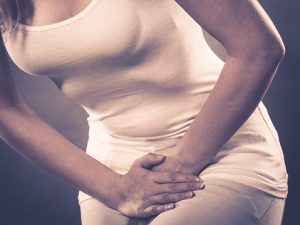 Bladder pressure is an uncomfortable sensation that may signify something more serious than the need to urinate, so how can you relieve pressure on the bladder?
Bladder pressure is an uncomfortable sensation that may signify something more serious than the need to urinate, so how can you relieve pressure on the bladder?
Continue reading to find out some of the most common causes of bladder pressure, what it means when you feel pressure on your bladder, and how you can relieve this uncomfortable sensation.
What causes bladder pressure
Advertisement
There are many different reasons why you may be experiencing pressure on the bladder. It can vary from something as simple as a urinary tract infection to something as serious as cancer. Below are some of the most common causes of pain and pressure on the bladder.
Urinary tract infection: UTIs can occur anywhere within the urinary tract and are caused by bacteria. Those experiencing a urinary tract infection can have an urgent need to pee but find it difficult to completely empty the bladder, resulting in painful pressure.
Cystitis: This is inflammation of the bladder caused by the same bacteria that causes UTIs. Cystitis only occurs in the bladder and kidneys and can cause muscle spasms that make it feel as though there is pressure on the bladder.
Obstruction: Urinary retention can be caused by an obstruction in the urethra that blocks the flow of urine, which creates pressure on the bladder. Common obstructions include kidney stones and benign or malignant tumors.
Muscular disorders: Conditions such as Parkinson’s disease, stroke, and spinal cord injuries can lead to an overactive bladder, an issue where the muscles and nerves in the bladder become too sensitive and cause premature urination or leakage.
Bladder cancer: A less common cause may be the development of bladder cancer, which normally starts in the lining of the bladder. Pressure on the bladder, as well as blood in the urine, are common symptoms of the beginning stages of bladder cancer. This can be diagnosed using a variety of lab tests by your physician.
Prostatitis: Pressure on the bladder can also vary by sex. Men specifically may experience pressure on the bladder due to prostatitis, an infection of the prostate gland.
Uterine fibroids: Women may experience bladder pressure due to uterine fibroids, which are growths that form in the uterus.
Endometriosis: Another issue that affects women and may cause pressure on the bladder is endometriosis. Endometriosis occurs when tissue that typically grows inside of the uterus starts growing outside of it, causing pain and discomfort.
Ovarian cancer: Ovarian and uterine cancer can cause pressure on the bladder in women, as the irregular cell growth can cause the ovaries and uterus to press on the bladder.
How to relieve pressure on the bladder
There are remedies available to treat bladder pressure depending on its cause. Some of the most common ways to treat bladder pressure are:
Antibiotics: If your bladder pressure is a symptom of a UTI or another form of infection, your doctor will prescribe an antibiotic to treat the infection and relieve the associated symptoms.
Cranberry juice. Cranberry juice can help fight UTIs and ease the feeling of pressure on the bladder that they cause.
Water: Drinking a minimum of eight glasses of water daily can help flush any harmful or infection-causing bacteria out of your system, aiding in the treatment of infections that can cause bladder pressure.
Heating pads: Use a heating pad or warm compress on your lower abdomen to soothe muscle spasms that cause pressure on the bladder.
Avoid bladder-irritating drinks: Stay away from drinks that contain caffeine, alcohol, and citrus, as they can irritate the bladder and worsen the sensation of pressure.
Analgesics: Taking an over the counter pain medication like acetaminophen, ibuprofen, or aspirin can relieve pain and reduce any swelling associated with bladder pressure.
Preventing pressure on bladder
The best way to treat bladder pressure is to avoid experiencing it in the first place. Below are some tips to help prevent infections, and in turn, pressure on the bladder.
Underwear: Wearing loose, comfortable, cotton underwear prevents bacteria from being trapped near the urethra and causing an infection.
Shower: Showering rather than bathing reduces your risk of getting an infection, as the warm water of the tub is great for bacteria and the soap can wash away any protective mucous membranes.
Don’t hold it: If you have the urge to urinate, do so as soon as you can. Holding urine in your bladder can create a breeding ground for bacteria, which leads to infection.
Advertisement
Water: Drinking plenty of water helps to flush your system and can reduce the risk of getting a bacterial infection.
While pressure on the bladder has a variety of causes that can vary by sex, most are not very serious and can be treated easily. However, it is important to seek the advice of a healthcare professional if you are experiencing bladder pressure so that its cause can be accurately diagnosed and appropriately treated before your condition worsens.
Related: Can you have sex with a UTI?
